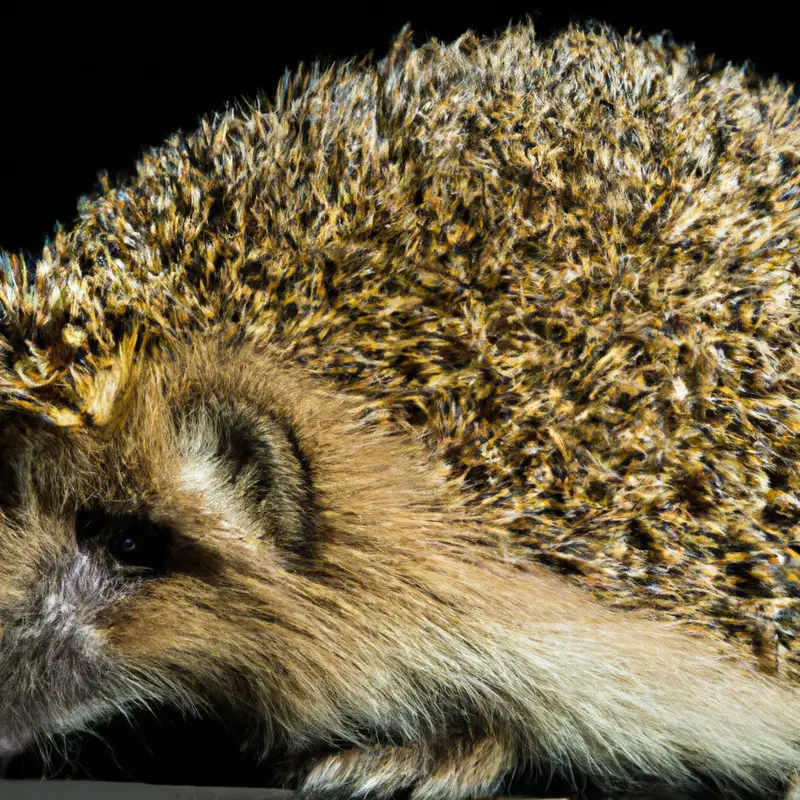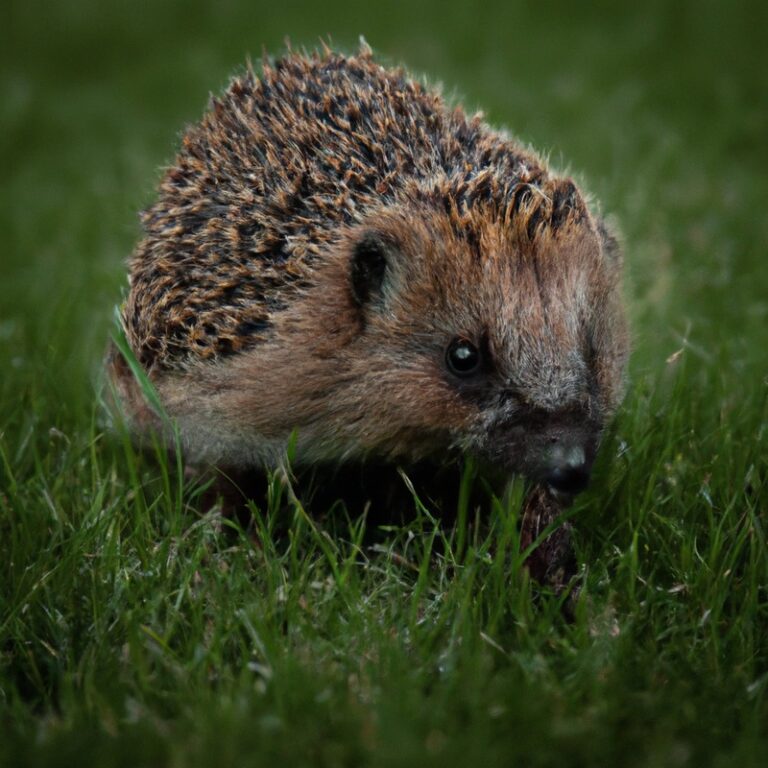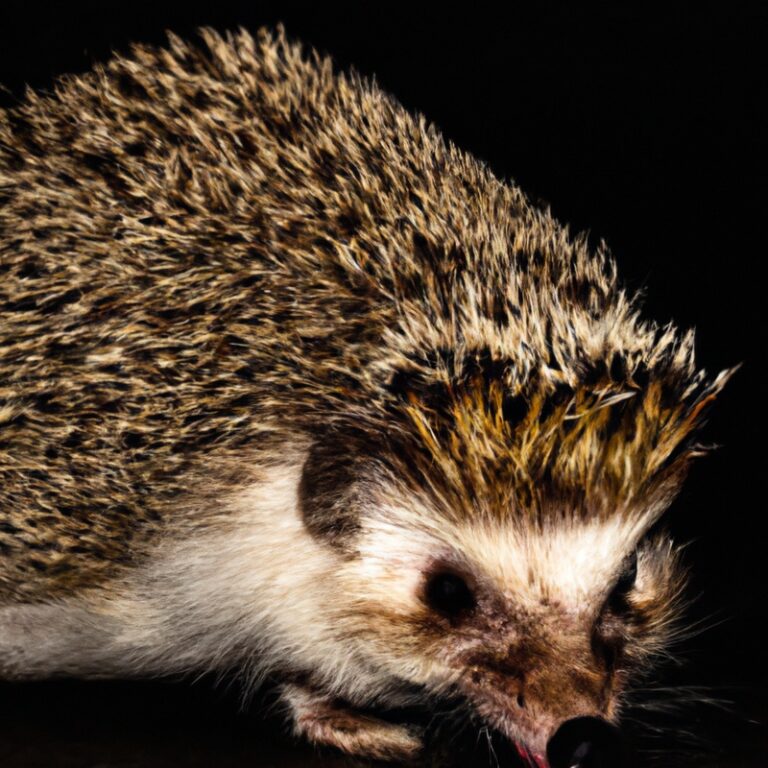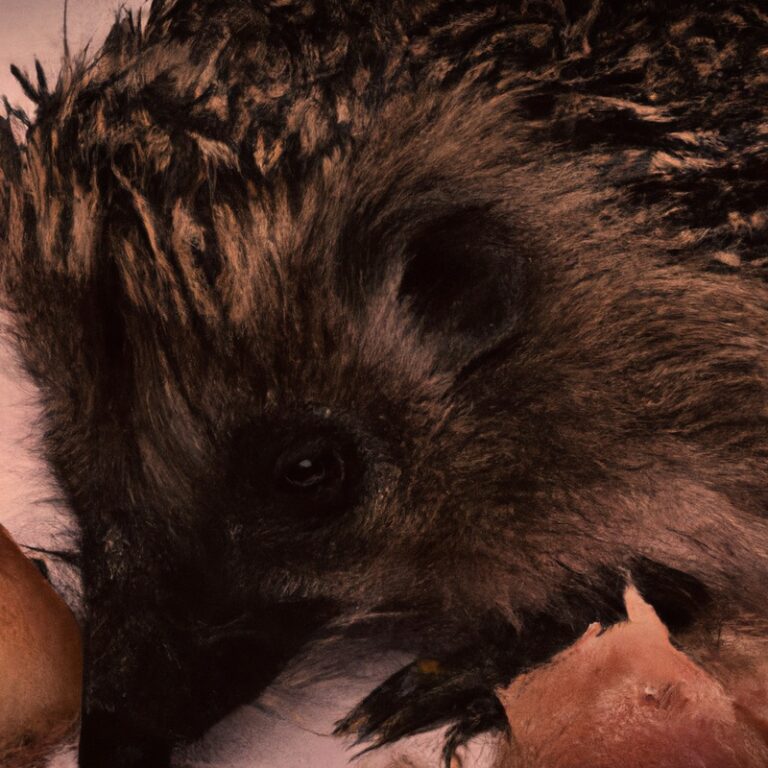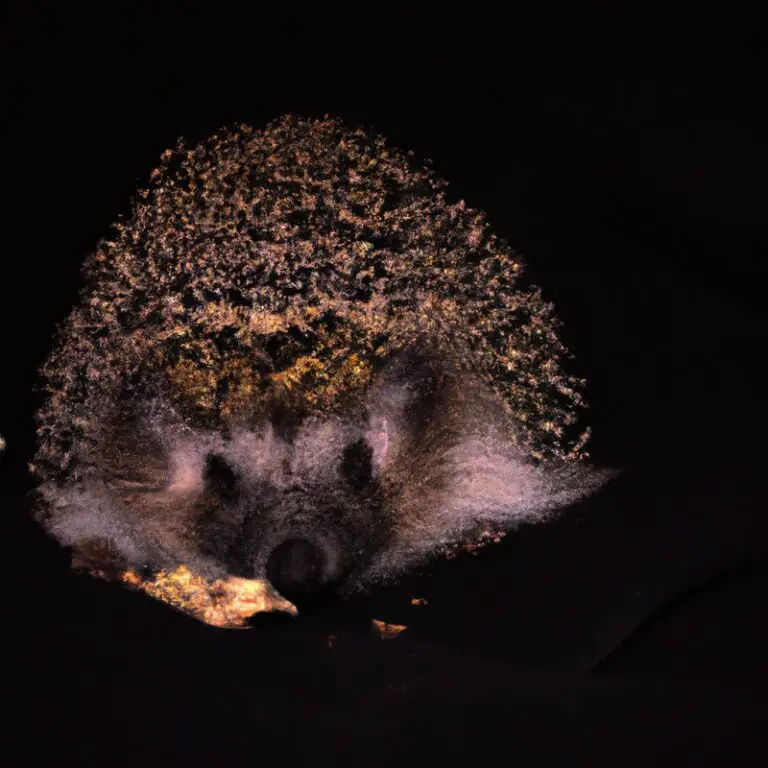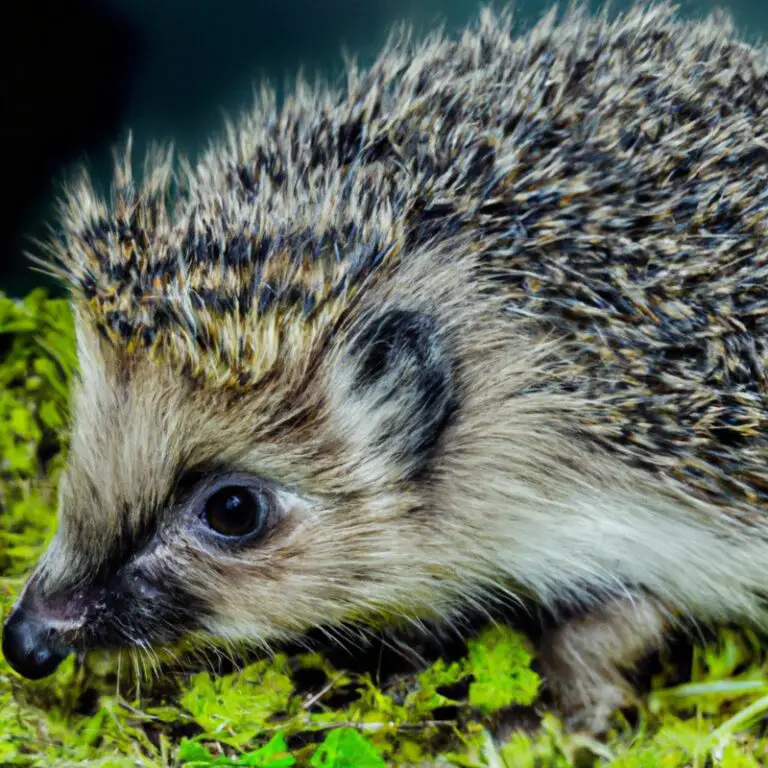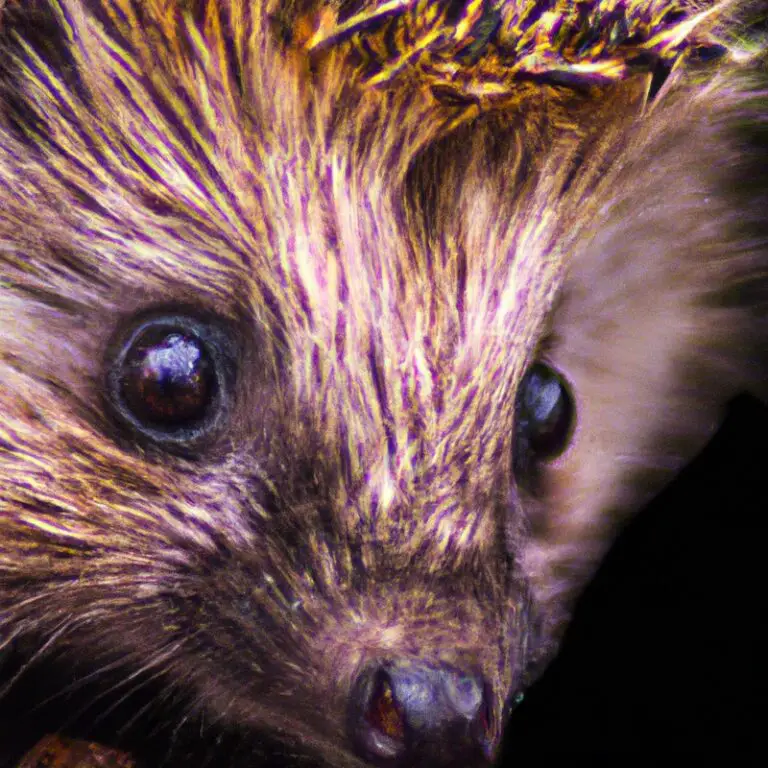What Do Hedgehogs Eat In The Wild?
Key Takeaways:
- Hedgehogs in the wild primarily eat a diet consisting of insects and other invertebrates.
- They also consume small amounts of fruits, plants, and fungi for additional nutrition.
- Hedgehogs have a varied diet that helps them obtain the necessary nutrients for survival.
- In the wild, hedgehogs are opportunistic feeders, adapting their diet based on what is available in their environment.
Curious about what hedgehogs munch on in the wild? Well, you’ve come to the right place! In this article, we’ll take a closer look at the fascinating diet of these spiky little creatures.
From insects and slugs to fruits and vegetation, hedgehogs have a surprisingly diverse palate.
We’ll explore the importance of a varied diet and how their food choices vary with the seasons. Plus, we’ll delve into the factors that influence their diet, including their geographic location, availability of food sources, climate, and predators.
And don’t worry, we’ll also tackle some frequently asked questions about what hedgehogs can and can’t eat.
Let’s get started!
| Insects | Vegetation | Small animals |
|---|---|---|
| Beetles | Berries | Mice |
| Worms | Fruits | Rats |
| Crickets | Grasses | Frogs |
What do hedgehogs eat in the wild?
Hedgehogs in the wild have a varied diet that includes insects, slugs, snails, small vertebrates and eggs, fruits and berries, and roots and vegetation.
Overview of hedgehog diet
Hedgehogs have a diverse diet consisting of insects, worms, snails, slugs, and small vertebrates.
They also eat fruits, berries, and vegetables.
In the wild, hedgehogs are opportunistic feeders, scrounging for food during the night.
They have a keen sense of smell to locate their prey.
It’s important to note that a hedgehog’s diet can vary depending on its habitat and availability of food.
To ensure a healthy diet, providing a mix of commercial hedgehog food, insects, and vegetables is recommended for pet hedgehogs.
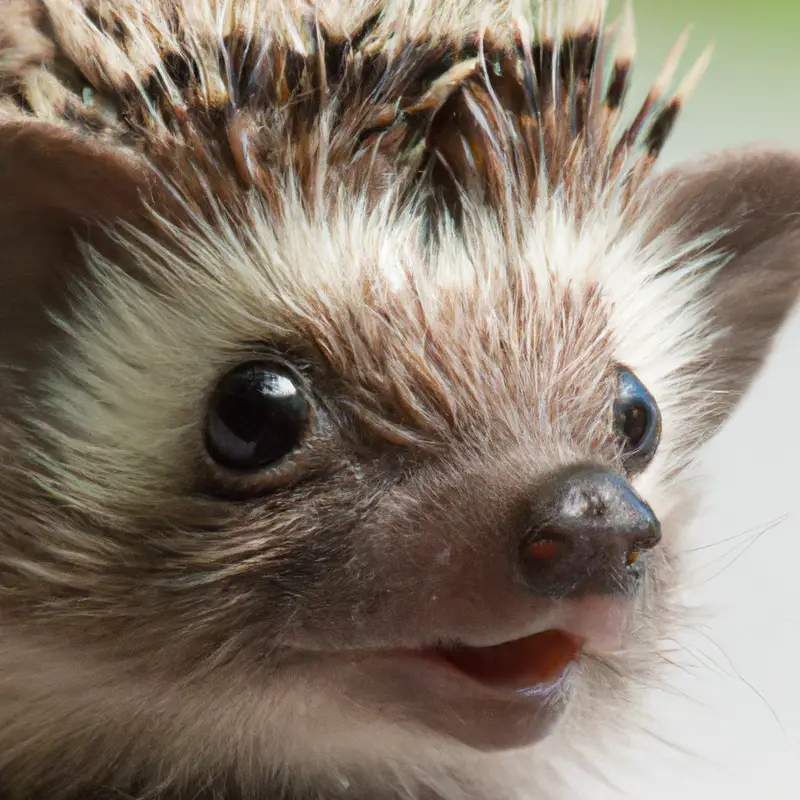
Insects and bugs
In the wild, hedgehogs eat a variety of insects and bugs. They have a natural affinity for these little critters and they make up a significant part of their diet.
Some common insects and bugs that hedgehogs enjoy include beetles, caterpillars, crickets, and earthworms.
These small creatures provide the hedgehogs with essential nutrients and help them stay healthy. So if you ever come across a hedgehog in your garden, don’t be surprised if you see it munching on some insects or bugs!
Slugs and snails
Slugs and snails are common food sources for hedgehogs in the wild. These small creatures provide a good source of protein for hedgehogs, helping to meet their dietary needs.
Hedgehogs have a natural instinct for finding and eating slugs and snails, which are often abundant in their habitat.
However, it’s important to remember that not all slugs and snails are safe for hedgehogs to eat. Some can be harmful or even toxic, so it’s best to let hedgehogs find their own food in the wild rather than trying to provide them with slugs and snails in captivity.
Small vertebrates and eggs
Hedgehogs in the wild rely on a varied diet, which includes small vertebrates such as frogs, mice, and birds.
They also consume eggs from nesting birds or reptiles.
While their primary food source consists of invertebrates like insects and worms, these small vertebrates and eggs provide additional protein and nutrients that hedgehogs need to thrive in their natural habitat.
So, when hedgehogs are foraging in the wild, they will opportunistically hunt and feast on these small vertebrates and eggs to supplement their diet.
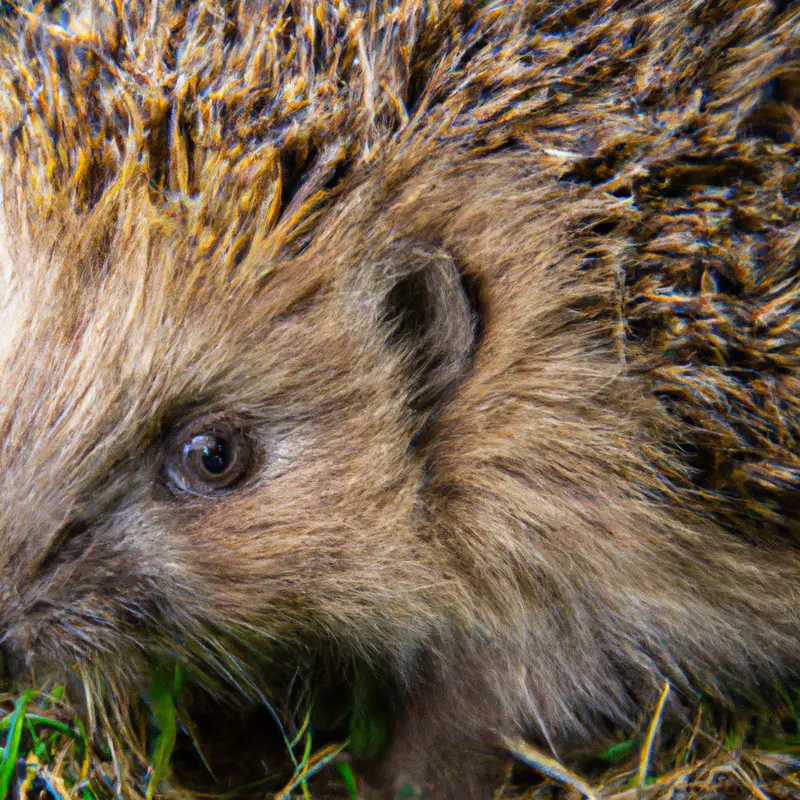
Fruits and berries
Fruits and berries are an important part of a wild hedgehog’s diet.
They provide essential vitamins, minerals, and antioxidants.
Some common fruits and berries that hedgehogs eat in the wild include apples, pears, blackberries, raspberries, and strawberries.
These fruits and berries are not only delicious for the hedgehogs, but also beneficial for their overall health.
Just make sure to wash the fruits properly before offering them to a pet hedgehog to remove any harmful pesticides or chemicals.
Roots and vegetation
In the wild, hedgehogs primarily eat roots and vegetation. They have a diverse diet that includes a variety of plant matter, such as berries, fruits, leaves, and fungi.
Hedgehogs are opportunistic foragers and will consume whatever is available in their surroundings.
This can include insects, worms, snails, and even small vertebrates. However, the bulk of their diet consists of roots and vegetation, which provide them with the necessary nutrients for survival.
Importance of a varied diet
A varied diet is important for hedgehogs because it provides them with essential nutrients and helps prevent health issues.
By eating a diverse range of foods, hedgehogs ensure that they receive the proper balance of vitamins, minerals, and proteins they need to stay healthy.
This can include insects, fruits, vegetables, and even some meats.
A varied diet also helps hedgehogs maintain a healthy weight and digestive system.
Providing different types of food is a simple way to promote their overall well-being.
Seasonal variations in the diet
Seasonal variations in the diet of hedgehogs depend on what’s available during different times of the year.
In spring and summer, they eat mostly insects, worms, and snails.
This is when these creatures are abundant and easier to find.
In autumn, they also enjoy fruits, berries, and mushrooms, as they become more plentiful.
During winter, hedgehogs hibernate and do not eat.
So, their diet during this season is very minimal.
Remember, hedgehogs are opportunistic feeders, so their diet adapts to the food sources available in each season.
Factors affecting hedgehog diet in the wild
The hedgehog diet in the wild is influenced by factors such as geographic location, availability of food sources, climate and weather conditions, as well as predators and competition.
Geographic location
Geographic location plays a significant role in determining the diet of wild hedgehogs. Their food sources vary depending on the region they inhabit.
In some areas, hedgehogs primarily consume insects like beetles, slugs, and worms.
In other locations, their diet may include fruits, berries, or even small vertebrates like mice or frogs. The availability of these food sources in different regions influences what hedgehogs eat in the wild.
Availability of food sources
Hedgehogs rely on a range of food sources in the wild to meet their nutritional needs. They primarily feed on insects such as beetles, caterpillars, and slugs, which make up the majority of their diet.
Additionally, they may consume small vertebrates like frogs and mice.
Hedgehogs also eat fruits, berries, and plant matter, especially during the warmer months when these are more readily available. The availability of different food sources throughout the year can impact hedgehog populations, as fluctuations in prey populations and habitat changes can affect their overall food supply.
Climate and weather conditions
Climate and weather conditions play a significant role in determining the diet of hedgehogs in the wild.
For instance, during the warmer months, hedgehogs have access to a wider variety of insects, worms, and other invertebrates due to increased activity levels.
In colder climates, the availability of such food sources decreases, and hedgehogs may rely more on fruits, berries, and bird eggs.
Extreme weather conditions can also impact their ability to forage for food.
It is important to understand these factors in order to better understand and support hedgehog conservation efforts.
Predators and competition
Predators and competition play a significant role in shaping the diet of hedgehogs in the wild.
Hedgehogs have to contend with various predators, including foxes, badgers, and large birds of prey.
To avoid becoming prey, hedgehogs are primarily nocturnal, relying on their spines and ability to roll into a ball for defense.
Additionally, competition for food sources such as insects and small vertebrates can also impact hedgehog diet.
They must be adaptable and opportunistic eaters to survive in environments with limited resources.
Feeding behavior of hedgehogs
Hedgehogs display nocturnal feeding habits and employ various foraging techniques to find food.
They also have unique eating strategies and may specialize in specific niches for their diet.
Nocturnal feeding habits
Hedgehogs are nocturnal animals, which means they are most active at night when they search for food.
During this time, they have adapted to feed on a variety of invertebrates such as worms, beetles, slugs, and snails.
They may also snack on small mammals, birds, eggs, and even some fruits.
Hedgehogs use their sharp teeth and strong jaws to munch on their prey.
Their ability to adapt to different food sources helps them survive in their natural habitats.
Foraging techniques
Hedgehogs have a few primary foraging techniques that help them find food in the wild. They use their keen sense of smell to sniff out insects, worms, and other small prey.
Hedgehogs also rely on their sharp hearing to locate rustling sounds that may indicate the presence of food.
In addition, they use their strong front claws to dig and root through vegetation or soil to uncover hidden meals. These foraging techniques allow hedgehogs to efficiently find the nutrients they need to survive in their natural habitats.
Eating strategies
Hedgehogs have a few eating strategies to help them find food in the wild.
They are known as opportunistic feeders, meaning they will eat whatever is available to them.
Their diet mainly consists of insects, worms, snails, and other small creatures.
Hedgehogs will also eat fruits, berries, and even eggs if they come across them.
They use their keen sense of smell to locate food, and their long tongues to lap it up.
Their diet can vary depending on the season and what is available in their habitat.
Niche specialization
Niche specialization refers to the unique role that an organism plays within its ecosystem.
Hedgehogs are specialized feeders with a diet primarily consisting of invertebrates like insects and worms.
This specialized diet allows hedgehogs to control pest populations and contribute to the overall balance of their habitat.
Their ability to hunt and consume these specific prey items showcases their niche specialization as insectivores.
By focusing on their specific food sources, hedgehogs are able to thrive and fulfill their ecological role in the wild.
Frequently Asked Questions
Can hedgehogs eat cat food or dog food?
Yes, hedgehogs can eat cat food or dog food.
These types of commercial pet food can be a convenient option as they contain a good balance of nutrients for hedgehogs.
However, it’s important to choose cat or dog food that is specifically formulated for “all life stages” or “kitten” formulas.
Avoid selecting food that contains fish as the main ingredient, as it may lead to health issues.
Additionally, it’s always a good idea to supplement their diet with a variety of insects, fruits, and vegetables for a well-rounded meal.
Can hedgehogs consume dairy products?
Hedgehogs should not consume dairy products.
Their digestive systems are not designed to process lactose, the sugar found in milk.
Dairy can cause digestive upset, leading to diarrhea and other gastrointestinal issues.
Stick to a diet that consists of insects, fruits, and vegetables to provide hedgehogs with the nutrition they need.
Avoid offering any dairy products, including milk, cheese, and yogurt, as these can be harmful to their health.
Keep your hedgehog happy and healthy by providing a proper diet tailored to their needs.
Should hedgehogs be given water?
Hedgehogs should be given water to stay hydrated.
It is important to provide a shallow dish of fresh water for them to drink from.
Ensure that the dish is placed in a secure location to prevent spillage or contamination.
Providing water is essential for their overall well-being and helps them maintain proper body functions.
Can hedgehogs eat bread or other human foods?
Hedgehogs should not eat bread or other human foods.
Their diet in the wild primarily consists of insects, worms, slugs, and snails.
Feeding them bread or other human foods can lead to digestive issues and obesity.
It’s important to provide them with a balanced and species-appropriate diet to keep them healthy.
Stick to commercial hedgehog food, supplemented with fruits and vegetables as treats.
Always consult with a veterinarian for specific dietary recommendations for your pet hedgehog.
Final Verdict
Hedgehogs have a varied diet that consists of insects, slugs, snails, small vertebrates, eggs, fruits, berries, roots, and vegetation. Their diet is influenced by factors such as geographic location, availability of food sources, climate, weather conditions, predators, and competition.
Hedgehogs exhibit nocturnal feeding habits and employ various foraging techniques and eating strategies.
It is important to provide a varied diet for hedgehogs and avoid feeding them human foods or dairy products. Overall, hedgehogs are fascinating creatures with unique feeding behaviors and dietary needs.

